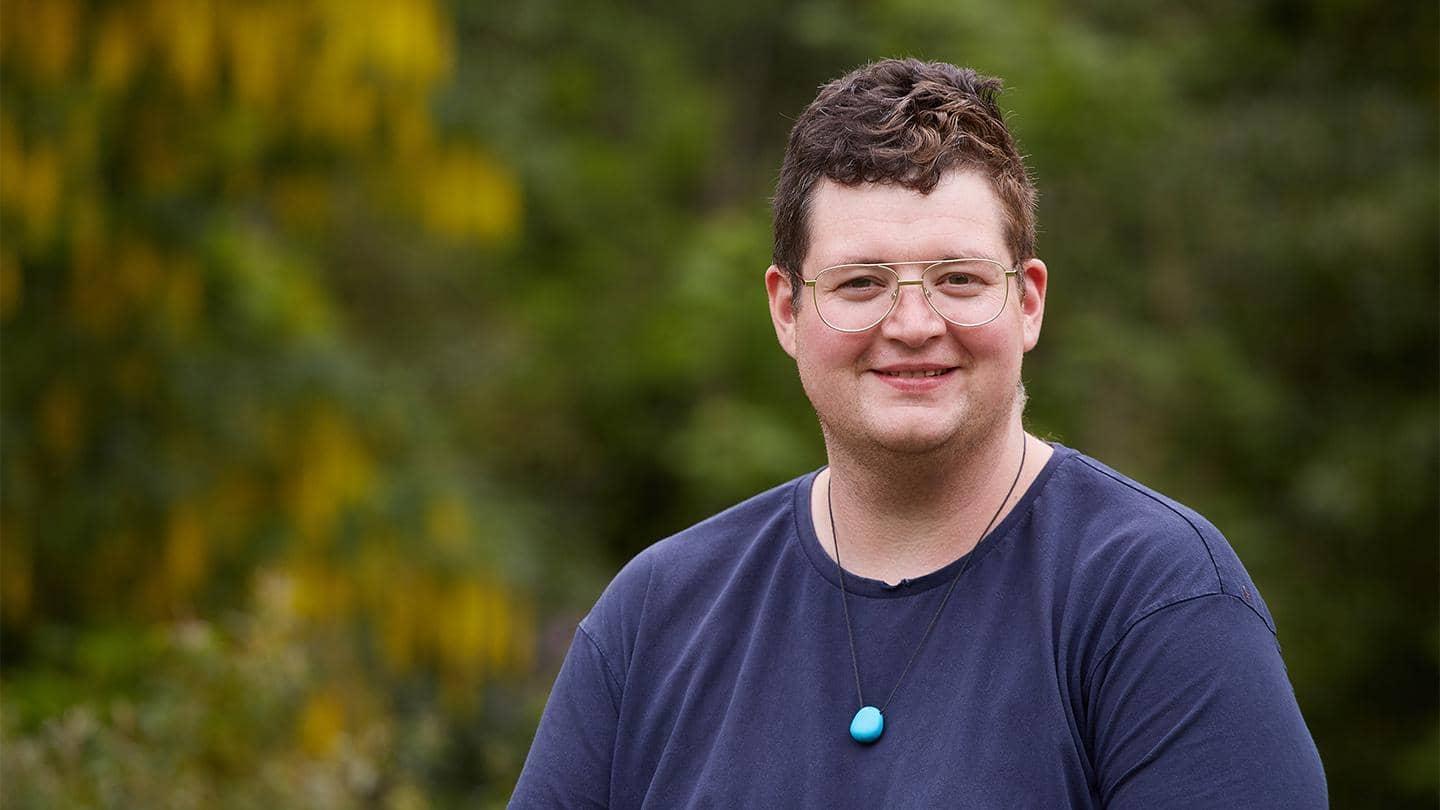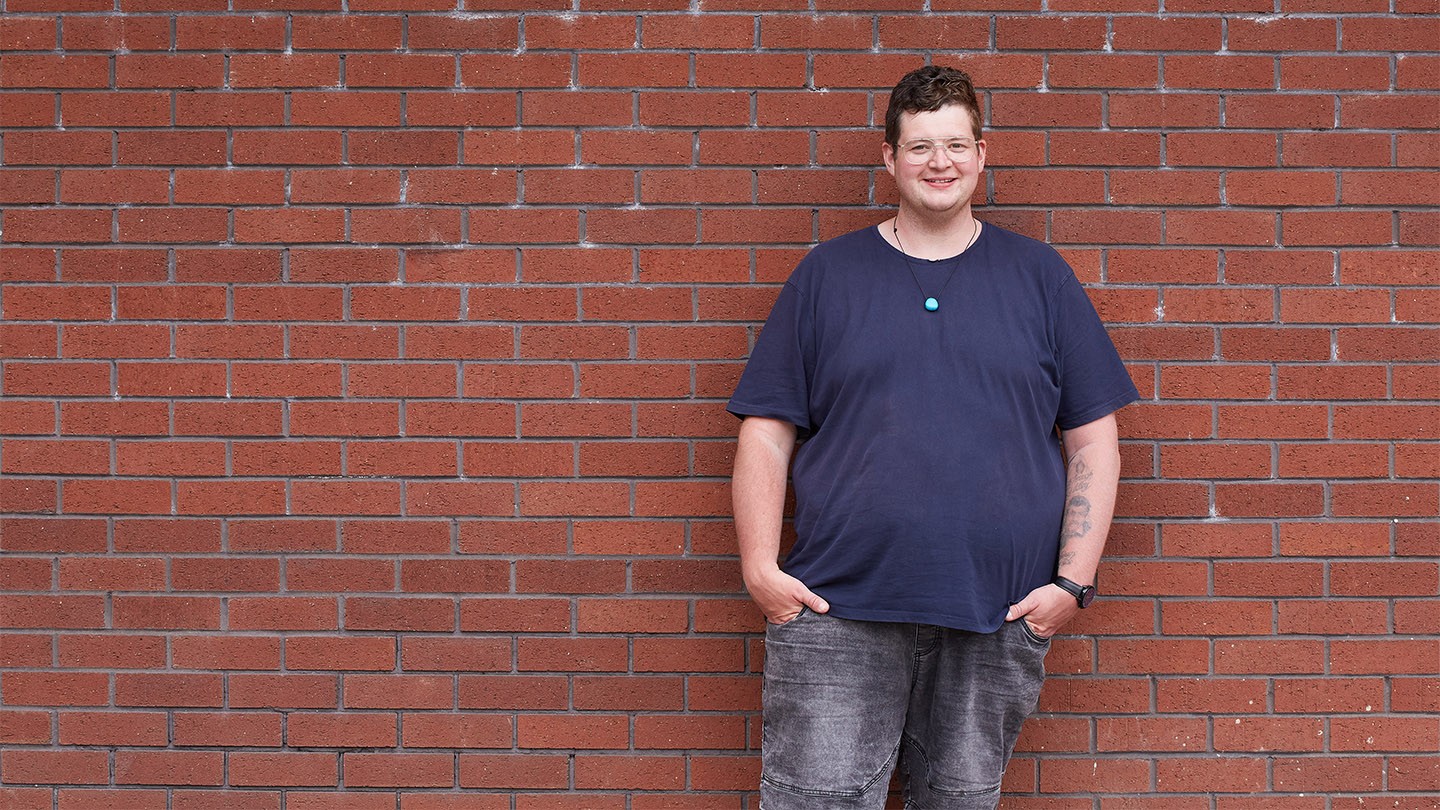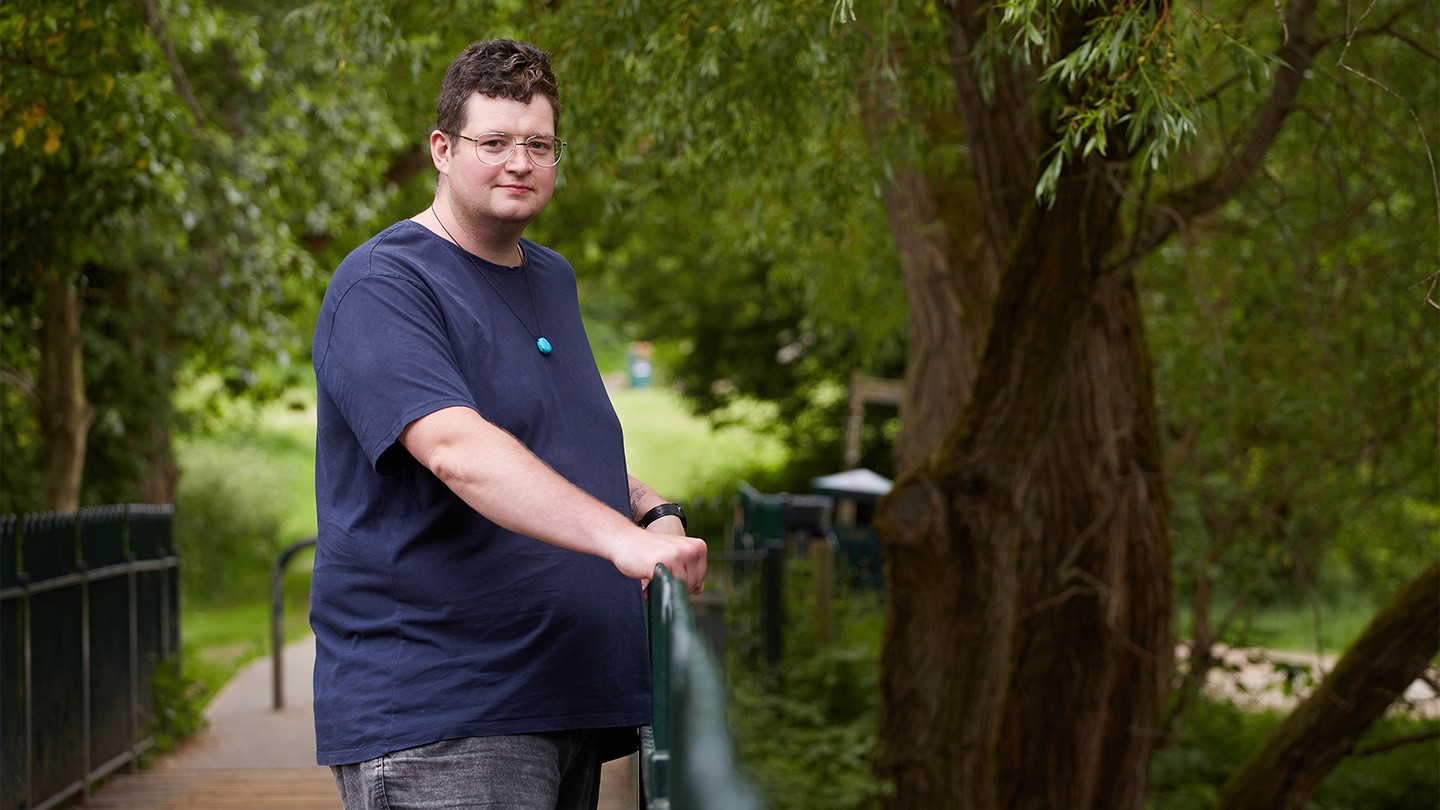
Impact
Samaritans: “It’s vital that we continue to be there to listen”
Samaritans volunteers respond to 10,000 calls for help every day, from people who need a listening ear – and they are busy 24 hours a day, 365 days a year. When a Barclays colleague heard about the pressure Samaritans was facing during the pandemic, his team began arranging help through the COVID-19 Community Aid Package – culminating in activities ranging from sharing technology expertise, to funding new virtual tools.
John struggled during the first lockdown.
“At the beginning of 2020, I hadn’t self-harmed for about four years, but that all changed when the UK went into lockdown. I began self-harming again, nearly every day.” Having called the emotional support charity’s helpline in the past, John knew they could turn to Samaritans for support.
When they reached out for help this time, they discovered Samaritans’ new Self-Help app. Launched in May 2020, the app was just one initiative backed by Barclays' £100m COVID-19 Community Aid Package – and helped John to overcome self-harm during lockdown.
I hope that by sharing my story, it could help someone else to open up, too.
Samaritans service user

John was able to turn to Samaritans for support during the pandemic.
Samaritans is a critical service, needed now more than ever. In the 12 months since restrictions began in the UK, Samaritans’ 20,000 volunteers provided emotional support more than 2.3 million times to people struggling to cope. One in five of these calls involved specific concerns about COVID-19, with people feeling concerned about family, relationships, finances, unemployment and isolation.
Meanwhile, shielding restrictions at the start of the pandemic meant Samaritans saw a 30% reduction in volunteers who were able to cover listening shifts. While the available volunteers stepped in to ensure there was always someone there to listen, it was essential that the charity adapt – and fast.
Responding to a small request
As Samaritans worked round the clock to maintain support for those in need, news of the challenges facing the charity spread to Cal Corcoran, a Managing Director at Barclays.
Corcoran was chairing a virtual meeting when his colleague shared that his son’s partner, a Samaritans volunteer, was continuing to travel to the charity branch during lockdown to ensure no call went unanswered. Hearing this, Corcoran asked himself – could the bank find a way to help Samaritans?
Out of that simple question grew a much larger partnership.
“What started as a collaboration looking at call centre technology then expanded into being so much more,” says Corcoran. “It’s spanned the entire gambit – I think we brought the totality of Barclays to bear.”
The bank helped Samaritans to future-proof its technology by funding the distribution of hundreds of computers, and providing additional support for the charity to “renegotiate contracts and confirm that their technology strategy was right”. Further backing helped Samaritans to establish programmes such as virtual teams – allowing the charity to continue to grow its online chat pilot – and begin developing digital outreach initiatives across channels such as Reddit and Twitch to reach more people in need.
One of the biggest collaborative projects has been the Samaritans Self-Help app, which has been so crucial for people like John. Launched in May of last year, the app has already been used by more than 65,800 people. “I found the app quick and easy to use when I needed it,” says John. “It has practical things to help manage, and because it’s an app, it fits in with everyday life. It’s always there – on your phone, in your pocket. I use the app all the time, even now.”
Corcoran recognises that the bank’s relationship with Samaritans is “symbiotic”. “While we were helping them, they were helping us,” he says, “providing mental health training to our colleagues to help them look after themselves, as well as those around them. It’s been a great partnership that started as simply as somebody putting up their hand and saying, ‘Can you help my son’s partner at Samaritans?’”

John hopes sharing their story will help others to “open up”.
What Barclays is doing is helping us being there 24/7, and thinking about the services that we are offering not only now but into the future.
Executive Director of Income, Samaritans
“It’s okay to reach out for help”
“We know just how much of an impact the pandemic is having on people’s lives,” says Sonya Trivedy, Executive Director for Income at Samaritans. “It’s vital that we can continue to be there to listen. Barclays is helping us reach people struggling to cope, and supporting our response to the pandemic. It’s not just about financial help – Barclays is supporting us with their skills and expertise too.”
Reflecting on the ongoing emotional help Samaritans has been able to provide through the pandemic, Trivedy expresses gratitude. “What Barclays is doing is helping us to be there 24/7,” she says, “and thinking about the services that we are offering not only now but into the future.”
Now, over 18 months on from the first UK lockdown, John says: “I never used to share how I was feeling, but now I believe that talking can save lives. I hope that by sharing my story, it could help someone else to open up, too. It’s okay not to be okay. It’s okay to reach out for help.”